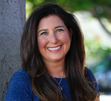Lisa Niver's Blog: We Said Go Travel, page 379
July 18, 2014
The Freedom in the Language Barrier
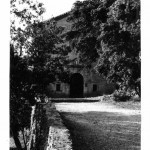
The Freedom in the Language Barrier
My name is Laura, and I went on pilgrimage to the Monastere of St. Joseph de Bessillon in Cotignac, France. It is the site where St. Joseph appeared in the 1600s. I went to ask St. Joseph, patron Saint of work, what I should do for my vocation, at 23 years old, and because I desired silence, I thought it fit to visit a monastery.
Buying the plane ticket was definitely a leap of faith, but I was happy to do it. I had to, something deeper in me was telling me to do it that I could not help but be obedient towards. That was freeing in itself… choosing to go to a place. I heard about this place in a magazine. I wrote them a letter and asked the nuns to pray for one of my friends going through a crisis. They wrote me back with a kind note and a brochure. We began a relationship and I asked about certainty to the nun. She replied, “Often, you are not certain until after you have made a decision.” At the time, my workplace was cutting back some of my hours and allowed us time off in August if we wanted. The website of the monastery indicated a silent retreat for young women, and I knew this was something I needed to do, especially following Pope Benedict XI’s Year of Faith encouragement for a pilgrimage. Then I received a letter for Jury Duty. That was a burden, but I was getting through it. My priest wrote a religious release letter, and after I received the approval, morally and legally I felt obligated to go on pilgrimage. And so I, by myself, knew no French, to be with God for two weeks.
Everything was a joy: the fact that I could not plug in my American phone at the Paris airport, could not print out the train ticket because I did not understand French, and then could not have full conversations with the nun who picked me up… I was free because I was helpless in a foreign land.
The monastery had a rule of silence. That was so good for me, because I did not have to feel guilty for telling others that I wanted to go read or pray. No, silence and prayer was the encouraged lifestyle. No longer was I disrupted with text messages, but was simply deciding all of my actions with what was given. We prayed seven times a day, and honestly, when each one was about to come, I found that I really needed and was looking forward to that next prayer time.
The fact that I spoke no French was really freeing for me. There are many pilgrims who visit the monastery and ask St. Joseph for prayers. One day, while on my way to prayers, a lady asked me (in French) a question. I kindly told her that I spoke no French and directed her to the doorbell and timetable posted, then hurried off to prayers.
There was always a bit of time left between prayers and the meal, or after the meal and prayers, or after the prayers and bedtime, and since the life was so simple, this time was challenging. I had to decide, okay, what do I really desire? And so I faced this emptiness, sometimes I read, other times just sat outside. And I think the life was freeing precisely because I experienced this emptiness, this need in myself.
The prayer life was freeing precisely because it was the one place where I was understood. It was where I decided things and asked for help. There, at this monastery, my friends and family were on my heart much more than ever before. It was here that I realized, “God, I hardly know you at all.”
I do not know why I felt free there, it was a complete gift, and I decided to accept it. The monastery was a place that allowed me to be like a child, without engrossed in the activities of everyone else, always talking, but just left in wonder and obedience to the daily life.
About the Author: Laura Klein is a 24 year old from the the Midwest with a B.A. in Psychology and feels most natural serving others in the restaurant business. She feels most herself when traveling, precisely because she identifies with the mode of seeking.
The post The Freedom in the Language Barrier appeared first on We Said Go Travel.
Vrindavan: Home Is Where The Heart Is
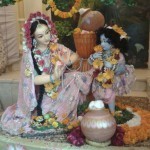
Vrindavan: Home Is Where The Heart Is
‘An Ordinary soul merely dreams but an extraordinary soul rebels to make dream come true’.
It is no quote but reflects my own philosophy.
Who says life is unfair?
Destiny bestows opportunity to everyone.
Few grab it & transform their lives.
Few just ignore it.
How Longing Begins To Find A Dream Home?
An opportunity may even come in a disguise of an adversity & that’s what happens with me.
On being confronted with a complicated situation, I choose to rebel against a marital alliance, based on the foundation of greed.
From that moment, my life gets turned upside down.
My home has all comforts but is left with no warmth for me.
Amidst tears, I decide to surrender my life to Lord Krishna & ask him to be my brother.
I believe that he will find me a ‘Dream home’ where I can experience warmth & live with my dignity.
Series of hints suggest me to go to ‘Vrindavan’ by gradually decoding the ‘Dream Home’ puzzle.
I earn money through writing & save it for Vrindavan sojourn.
Vrindavan: A Pilgrimage Where I Find Eternal Independence
Vrindavan is reflection of Goloka Vrindavan, an eternal abode of Lord Krishna. He & Radharani (Krishna’s consort) blessed Vrindavan through their eternal pastimes. There are approximately 5,000 temples in Vrindavan. It is located in Uttar Pradesh, India. It is believed that holy land of Vrindavan frees a soul from sins & material impurities. However, before we tread further with my story, just see how Lord Krishna introduces himself in the Holy book ‘Bhagvad Gita’.
“I am the conscience in the heart of all creatures
I am their beginning, their being, their end
I am the mind of the senses, I am the radiant sun among lights
I am the song in sacred lore,
I am the king of deities
I am the priest of great seers…”
Vrindavan Temples: Where Restless Souls Find Lasting Peace & Bliss
First temple visit at Vrindavan leaves me speechless & awestruck.
I go to Iskcon temple almost every day to hear kirtan (Adoration of divine) & to attend Aarti (Temple Prayer).
When I glance at temple deities of Lord Kirshna & Radharani, they make me forget everything.
Thank God! Unlike humans, God contemplates intention instead of presentation.
When I am in temple, I often feel strong urge to cry. When I can’t hold back my emotions, I cry without bothering about what people will think. Crying makes my heart feels lighter & better.
Finally, I am at a place where I can be true to my emotions to attain peace.
Sandipani Muni School: A Ray of Hope
I come to Vrindavan with a mission to contribute to humanity so I enquire at Sandipani Muni School (Food for Life School) about volunteering opportunities.
Fortunately, they choose me to teach English to primary kids.
How stupid of me to think that I am making difference to kids’ lives.
But it is they……who make a difference to my life.
They teach me how to laugh whole-heartedly, like a free-spirit.
They show me what unconditional love & genuine concern means.
Four months fly so quickly & a day comes to bid adieu to my little wonderful friends.
Gosh, I see so many wonderful gifts in front of me.
I am deeply touched with such sweet gesture.
Memories of kids & school make me feel nostalgic till date.
Everyday, I miss my little friends with whom I laughed, had meals & cracked jokes.
Vrindavan: A New Beginning, A Reason For Living, A Deeper Meaning……….
Vrindavan made my dreams come true, gave me lasting joy & peace that a home offers & completely captivated my heart. That is the reason, it is a dream home to me. After all a home is where the heart is.
This holy land taught me that lasting impression can be created by internal beauty only.
It taught me the meaning of ‘True Independence’ that never encourages a person to be impulsive.
Indeed, it encourages him to listen to his inner calling & inspires to make difference to others’ lives in a positive way.
I pay my sincere homage to Lord Krishna, Radharani & Tulsi devi (Holy Basil Plant) as they allowed me to explore the miracles & mystics of Vrindavan.
Vrindavan has not just put an end to my quest of ‘Dream home’ but has also answered many complicated questions of my life. I can say that I am certainly rejoicing my life in my ‘Dream home’ & also the transformation that fostered immense faith in me & my inner-self – I am up for more!
About the Author: I am a writer, a yoga teacher & most importantly a believer because a true belief leads to miracles..
Thank you for reading and commenting. Please enter the Independence Travel Writing competition and tell your story.
The post Vrindavan: Home Is Where The Heart Is appeared first on We Said Go Travel.
July 17, 2014
Pandora the Explorer
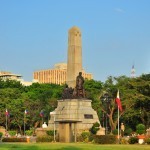
Pandora The Explorer
It was the end of March and I decided to walk at the dark sides of a busy city and some strange thing happened to me. Let me tell you the experiences I had while having a walk at a memorable place of the city.
Walking alone at a place where a familiar man is standing, I was disturbed by the noise of the people who were very busy in organizing some concerts. I just wanted to talk to that person standing in front of the park but then his two bodyguards stopped me. I am not allowed to move closer to his place, and I guess that’s the reason that no one is interested to come near him at some point.
I was surprised when he moved down to my place carrying a book and a torch. He handed me a blazing torch full of anger and sorrow, and he said that this will be the light that would guide us in walking at the darker side of the city.
After a couple of minutes, we entered a street named Tragedies. It was a painful experience to see and watch the dramas happening there. I saw a woman, hanged on a wall labelled “Lawlessness”, and beside her was a child named Ignorance, sucking the grimmer aspects of delinquency. I moved closer to the darkest part where an educated man was chained to the twin iron balls of “Graft” and “Corruption.”
Two slaves named Injustice and Inequality pulled me away and drove me out of the street. They took me to a palace named Democracy. I got a chance to see the cigar-smoking rock star comfortably sitting at the throne of the oligarchs. He has a genuine figure but has a tragic dignity.
I had a privilege to see the activities happening inside the palace and I have seen that rock star’s friends were enjoying their stay. They had pork barrel for dinner and violence for dessert; finally they rested their backs on the couch of gambling. Unfortunately, I never got a chance to sleep in the rooms of Royalties.
I was awakened by the noise, and I finally realized that everything was just a dream. Am I really dreaming?
Waking up in a different situation is a strange feeling, still confused about the truth. I went back to the places where I have been in my dream. I walked along the park where a familiar man is standing. As far as I can remember, he was the national hero of the country.
Jose Rizal once said, “The youth is the hope of the motherland.”
This is the place that allows me to be free. I can hear him saying: “Young lady, you are the hope of the country.”
What is hope if you I am restricting myself to be free? How can I say that I am free if there will be no hope for the betterment of the community?
This is the place where I am free. Liberal ideas are coming out as I am continuously walking along the bay and great walls of Intramuros. I am free in such a way that as a teenager, I am free to change the life I am living through for the better generation.
Manila.
About the Author: She is a Literary Editor at Jose Rizal University’s official publication. She is a scholar in her university taking Liberal Arts.
Thank you for reading and commenting. Please enter the Independence Travel Writing competition and tell your story.
Want to experience independence in the beautiful Philippines? WSGT found these travel books and gear to help you prepare.
Lonely Planet Philippines The best guide out there on The Philippines!
Tagalog: The Philippines Language Learning a little local language can go a long way.
Travel Umbrella Be ready for any kind of weather in the Philippines!
The post Pandora the Explorer appeared first on We Said Go Travel.
The In-Betweens in Costa Rica
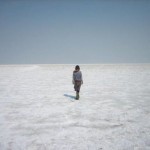
I look back through my tear-stained eyes for once last blurred glimpse of my parents. A fumble through ticketing and security lead me to a long, dimly lit passageway of seemingly infinite moving sidewalks. A glowing dome surrounds the chamber and the tiny lights that occupy my field of vision change form and hue in time with ambient music. My world is violet, it is blue, it is green, it is golden. People rush past me, but I continue to breathe slowly as I glide through the tunnel, so as not to disturb this stage of my journey. I think about where I am coming from and where I am going. The transition is fleeting, but the emotional response remains within me: I am free from both here and there.
My sister runs marathons. She once tried to explain, “I feel like me when I’m running. I run and I get a pure sense of myself. Without it, I don’t know who I am.” She adds, “You probably don’t understand.” “I get the same feeling from quitting things,” I tell her. She laughs it off, but I am serious. It’s the freedom after my last day of work, or the moment when everything I own is packed in a car, or the realization that I can flow through borders and time zones with ease, that make me understand the perpetuity of my existence. Those in-between moments, those times of metamorphoses during which I’ve renounced my commitments and face an endless world of opportunity, give me a true awareness of myself and of life’s potential.
An escalator whisks me out of the tunnel and delivers me to a gate of departure. I move through the walkway that connects a building at rest to a vehicle in preparation for movement. As I slide into a window seat and murmur casualties to my neighbor, an omnipotent voice cuts in, “If you think you’re on your way to San Jose, California, please get off this plane.” The flight attendant continues, “…because we are headed to San Jose, Costa Rica.” Passengers cheer. An hour later, looking out over a marshmallowed dawn, I attempt to fill the first page of a blank journal that will, in the future, be an account of the past. My idea is to make a list of expectations, of goals, and of things I’d like to change and challenge throughout this next stage of my life. Then I pause. I close the notebook, sip slowly from a tiny bottle of Merlot and take in the white noise. Through yoga and meditation, we are often reminded to relax and to breathe, that there is nowhere to go and nothing to do, when really, we could argue the opposite; We have everywhere to go and everything to do.
I land safely on earth, clear customs, exchange currency and arrange transportation, relieved by the knowledge that this period of motion renders me invulnerable to everyday decisions. Gazing out of a bus window at a metropolitan wilderness that is both foreign and oddly familiar, I am aware once again that freedom is not something to be contained in a place or in an experience because it radiates from within every place and every experience. As we drift out of the city and into the mountains, I take an intermission from my thoughts to appreciate the present moment. It’s times like these that weave places and experiences into the stories that make up our lives. The jungle lies ahead, but for now, I am at peace.
About the Author: Rachel tends to relocate every few months, likely as an attempt to compensate for her suburban upbringing in Toledo, Ohio. Throughout the past ten years, her path has led her from business school in Scandinavia to yoga school in Guatemala, and has always included plenty of nature, couchsurfing and specialty coffee. She is currently residing in Colombia.
Thank you for reading and commenting. Please enter the Independence Travel Writing competition and tell your story.
The post The In-Betweens in Costa Rica appeared first on We Said Go Travel.
July 16, 2014
Far Away From Chains
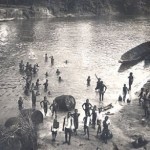
The stars far above shone its reflection on Imo River, giving it a pleasant view from where we stood. Fifteen of us lined up on a bamboo-made seat and gazed ahead; my eyes sparkled with excitement without a blink at what I saw.To me, the view was what I termed “nature” ; And what is nature? Nature is beauty!
Imo river which flows 150 miles into the Atlantic ocean through Niger Delta is located in Abia State, southeastern Nigeria.It features an 830 meter crossing between River State and Akwa-ibom. History recalls that the deity of the river is a female Imo Mmiri, who is believed to own it.
Eagerly, I made a little dash into the River and the splash echoed to give a rhythm of tenderness soothing to my ears; Minutes after, I surfaced to the top only to give a smile to my family,that signified being free from worries and rational “what if’s” ,then i walloped into the blue with my eyes closed .To me ,I was up in the sky floating beyond words -like I could do just anything!
Igbo’s by 95% of population in Abia state, were just in the eve of the “Igu Aro” (New yam festival) in the eight month, according to the Igbo calendar which had four days in a week, seven weeks in a month and thirteen months in a year. Some communities in Igbo land has tried to adjust the calendar to twelve months in line with the Gregorian calendar. Igbo communities hope to receive bountiful rains and bumper harvest each planting season as they hope their hard work pays off.
I left the River and soon joined others by the River bank to watch the fireflies fly freely in the dark woods, it reminded me of the quote by Dan Shipper “Advice from a firefly” which says ‘Be full of bright ideas; pulse with excitement ;have a beauty glow ;delight in summer evenings ; keep a child-like scene of wonder ;set a shinning example ;Lighten up’ Yes!,we all need to lighten up and listen up and not to give up what makes us free to give something up that’s worthy enough. So,what really makes you free?
The sister River to Imo, Aba River happens to be a tributary of Imo River which runs through Okpulor Umuobo in the Ngwa heartland into Aba city,and serves as a major supply of water for the city, which is famous for its handicrafts. A 30 kilometers pipeline powers Aba with gas from Imo River natural gas repository.
So,i thought : ‘Let the breeze comb through my hair and wind-wash my dress, reminding me of freedom.I have always loved to view the serene ,it was part of the unforgettable days of my childhood memories. I loved, as I still love to and hope I’d be loving to capture the unending joys of freedom .Indeed!,i’m far away from chains.
Thank you for reading and commenting. Please enter the Independence Travel Writing competition and tell your story.
The post Far Away From Chains appeared first on We Said Go Travel.
Freedom Road
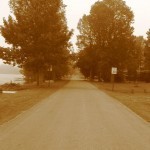
My sneakers slap the ground, crunching over a carpet of gravel and wood chips. I’m shaded beneath the green leafy canopy, but here humidity is ever-present. Sweat drips down my face, crusted beneath my eyes and salty on my lips.
My breathing is measured by footfalls: inhale for two, out for one. One-two—three. One-two—three. One-two—three.
Some days the rhythm is hypnotic, and my brain flits from this to that like a broken television. Other days my lungs ache and my legs also burn, and I hear nothing but breaths full of pain. But the ache is sweet, the burn compelling.
On these runs, I am, quite literally, out in the world—the real and natural world. I breathe the same air as the animals, bask in the same sun as the ancestors, feel the same rain as the leaves on the trees and the shrubs in the soil. Out here, there is me, my breath, my mind, and the road. There is no desk covered in angry neon post-its or the invisible yet infinitely heavy load of emails in need of reply. My friends cannot question. My partner cannot complain. Even my phone, that anchor to the virtual world cannot ring—it’s back in the house, blinking one bar of service. I am alone with the road, and the road with me.
A few yards ahead, the path ends. I burst out from beneath the trees and the sun welcomes me, bathing my skin brown. Sweat rolls off of my shoulders and down from my armpits. The gritty path turns to smooth, gray pavement, and I follow it out into the fields. The parallel yellow lines unfurl before me, leading me on.
As the road curves up and then slides back down, my mind follows. I replay the cornhole game from last night. Puffs of dust rose from the beanbags as they hit the board. Bright laughs punctuated the twilight. The taste of victory was a bit in my mouth as I launched that last beanbag, a perfect arc, toward board. A win! High-fives, hugs, lightening bugs everywhere.
The sun is high in the sky now, and my body starts to protest. Walk, says my mind. Just stop and walk. There’s no one out here to see you. And so what if they did? I glance down at my watch, stretch out my stride, and will myself to think of something, anything. It’s only 11a.m. I will run until noon. But after that? What will I do? Will I put on my swimsuit and lie on the dock? Sit on the porch swing with my half-finished novel? Curl on the couch with my journal? There is no Internet here, and so no Facebook or Instagram or Tumblr. No one to measure myself against, other than myself. No tasks other than those I choose to complete. Time and the road blur into one empty opportunity spread out before me, waiting.
This is my meditation. This is my escape. This is freedom.
About the Author: Allison Goldstein is an athlete, writer and world traveler. Her favorite sport is (currently) running. Her favorite author is (also currently) David Sedaris. And her favorite city would have to be New York, followed closely by Amsterdam, Barcelona, and of course her hometown, Pittsburgh.
Thank you for reading and commenting. Please enter the Independence Travel Writing competition and tell your story.
The post Freedom Road appeared first on We Said Go Travel.
July 15, 2014
U.S.A. Dreams
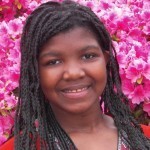
As a person who has traveled extensively, I can honestly state that every place is unique, having its own sense of freedom. Each place I have been to indeed have very obliging people. There are many places in the world in which the people living there are controlled and do not have a sense of being free to do what they want to do. I have lived in the United States for quite a while, and being a former immigrant myself, I’ve seen that this is a place truly filled with different cultures and people who have the freedom to be themselves. I was only two years old when I emigrated from Ghana to the U.S.A. When I was in preschool, I was very eager to learn how to read, and once I learned, I had a great love for it, but as I grew older, my love for reading developed into a love for writing. I began to have a passion for writing when I was about six years old, but back then my stories weren’t very good to me, but not to my mother, who thought they were great for someone as young as I was.
As I continued to read I felt that I could one day write incredible stories. I had a strong belief that I could write as remarkable as those phenomenal authors did. Thankfully, I’ve been given many opportunities to write. When I was in the sixth grade, my language teacher encouraged me to enter a writing contests, and I wrote a story about my elderly neighbor. I received an extraordinary amount of encouragement from my friends, my family, my classmates, and my teachers. That is what I believe freedom is, being able to pursue whatever interest one has, and getting all the needed support to do that and many more. In my case, instead of being judged, I was encouraged, and I felt proud to write. I was told a few months later that I had won the contests, and that is when my passion for writing became stronger. I began writing more stories and books with the hope that I would get them published. I read other books and used some of their authors’ ways of writing. I admired the way Katheryn Stockett wrote the characters’ point of views in her book The Help. It gave the readers a chance to see exactly how each character lived and felt. When I write I feel like I am the only person in the room. I can express all the things I can’t say or are afraid to say, and I can let my imagination take over.
Being in the United States has given me the independence and the associated freedom to pursue my passion for writing and will surely present that same opportunity to every person living in the United States. Writing allows me to be whoever I want to be, and it allows other people to understand my personality and my emotions without me having to give any description of myself. Freedom, I presume, is a gift given to me, and like freedom, writing is a gift that I am blessed with. Each and every day is a day for me to write something new. Whenever something interesting happens throughout my life, I write about it, and I can use different names to turn it into a realistic fiction story, or I could make the characters different creatures to turn it into a regular fiction story. The time I spend writing is the time for me to relax and just relive my day or have fun and write a frivolous story. I believe that I have progressed in writing because I moved to the U.S.A, and I also believe that moving to this place of freedom was a part of God’s plan for me to find my passion.
About the Author:My name is Doreen Agyin-Birikorang, and I was born in Tema, Ghana, but moved to the U.S.A. with my family due to my father’s new job. I can understand most of the language that my family speaks, but I have trouble speaking it. I have loved writing for a long time, and not only do I hope to be a successful writer when I grow up, but to be as good as one of the greatest writers like Katheryn Stockett or Sue Monk Kidd, who are the authors of my two favorite books, The Help and The Secret Life of Bees.
Thank you for reading and commenting. Please enter the Independence Travel Writing competition and tell your story.
The post U.S.A. Dreams appeared first on We Said Go Travel.
Mountain Girl hits the trail
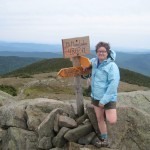
When I climb mountains on my own, my out-of-the-mountains life melts away. I become a person who doesn’t have a messy kitchen and has no errands to run. While at times I feel like I am going to die from exertion, I also feel years falling off my shoulders.
Give me a mountain range, and I’ll start walking, but most of my explorations take place in the White Mountains of New Hampshire. Currently, I am on a 30-year quest to climb all 48 of New Hampshire’s “4,0000 footers.” Every spring, as soon as the snow melts, I find a few days over a few months to slip north to hike additional peaks on my list: Moosilauke, North Twin, the Bonds.
I also enjoy hiking with friends and family. But solo hiking, which began out of necessity — because it’s often hard to find friends who want to spend long days climbing uphill — has become a passion. Hiking is a true mind-body in-the-moment experience, but especially so when walking alone. With no companion to talk with, my mind becomes engaged in propelling my feet forward. I am fully present in the moment because the moment won’t allow for anything else.
Up in the balsam and fir trees, I hear invisible white-throated sparrows and hermit thrushes calling to one another. On the ground, I admire the trillium and the bunchberry. In the sky, I watch the clouds for signs of changes in the weather. I love the feeling of intimacy I’ve developed with the landscape: over here, the sloping hulk of Mount Washington, over there, the sharp peak of Mount Lafayette and the spine of Franconia Ridge.
I’ve also time traveled in these mountains, learning their histories as a way of getting to know them better. Eighteenth century colonial rangers bushwhacked over Mount Osceola while hunting Indian scalps for a bounty. On the summit of Mount Moriah, 19th century tourists roughed it in a long-vanished cabin. And on the face of Mount Willey, I look for signs of the 1826 slide that killed nine members of the Willey family when they fled their cabin to escape from a wall of mud and rock, only to run directly into its path.
Although I sometimes land on a summit by myself, I am seldom alone in the White Mountains, which are full of other solo hikers looking to experience the same freedom. On the trail, we strike up conversations, compare notes, and sometimes share a meal or drink at the trail’s end, friendly stops on our solitary journeys. Social identifiers such as job, age, or marital status fall away. I am not Responsible Mother, Wife, Teacher, Daughter. I am the Mountain Girl, age undetermined, respected for her grit in being out on the trail.
For hikers who frequent taller mountains, 4,000 feet doesn’t sound so bad. But 4,000 or 5,000 feet in the White Mountains is no joke. Trails often are unrelentingly steep.
Sometimes the steepness causes me to curse and rail against the mountain. But never do I doubt that I will make it to the top. This certainty, and the confidence it brings to other life domains, is what I have always loved about hiking – I know, unquestionably, that I can do it, that I can put one foot in front of the other, no matter how rough or steep the terrain, and push myself up the trail to take in the views of mountains folded upon mountains. I may never win a prize in a 5K or master the piano, but I know I can reach the top of whatever mountain I set to scale.
The last mile back to the car is always the longest. By the time I take off my boots, I’m cured of the desire to hike another 4,000-footer — but only for a few days.
One day soon, I’ll complete all of New Hampshire’s 4,000 footers. But I’ll never finish exploring the cracks and folds of these mountains, and their neighbors in Maine and Vermont, and around the world. When the mountains call, Mountain Girl laces up her boots and starts walking.
Thank you for reading and commenting. Please enter the Independence Travel Writing competition and tell your story.
Ready to go hiking? WSGT found these travel books and gear to help you prepare.
Hiking the White Mountains in New Hampshire: Be ready with everything you need to know about hiking in New Hampshire
Compass: Make it easier to find your back to civilization.
Trekking Poles: One of the most underrated hiking equipment.
The post Mountain Girl hits the trail appeared first on We Said Go Travel.
July 14, 2014
From Montego-Bay to Royan
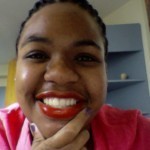
From Montego-Bay to Royan
Growing up in Jamaica, water was always at my fingertips. As a child, I considered her a close friend. I would play with the water and she would play with me. I would stand waist deep in her salty blues and she would splash me over and over trying to push me to the sand below. Her continuous waves teased me, encouraging me to follow her out to the tip of her vast expanses only to rush back sending me onto the dry sand. But I could never manage to stay away from her.
As I grew older, I became more daring with her and my imagination of what was possible. I wanted close my eyes and relax in the ocean, surrender myself to the ebb and flow if the waves. Let them decide where I should end up. There were some days that I sit by the ocean and feel this uncontrollable urge to dive in, sink to her very depths, and never resurface. This was not a thought of suicide but one of regeneration. A fantasy in which I could now start a new life underwater. I would construct my home out of abandoned lobster and oyster shells, feast on the abundant fish in my surroundings, and dance with the occasional dolphin or turtle that paid a visit. I imagined that it wouldn’t be so different than moving to another country. It would be much easier in fact because there would be no VISA requirements. I might have to develop new defense skills to fight off the sharks and the killer whales but in the ocean, there was true freedom for me to travel anywhere and everywhere.
It wasn’t just ocean water that appealed to my sense of wonder. The rushing waters of the many rivers coursing through my tiny nation beckoned just as strongly. Going to the river was a daily ritual, one that I cherished as a child for it was in these rivers I learned how water gave the freedom to live. It was in these rivers that I learned about the magic of mother nature. Being in and near the endless waters was how I connected with the Earth and the many people that inhabited this tiny planet for it was on a beach in a tiny city in France that I made a brief but lasting friendship.
My last trip to France, I decided to forgo the usual stay in Paris and spent a week in the small town on the south coast, Royan. This city doubled in population during the summer months because of its crisp blue waters. It was here I met a young man. He didn’t speak much English and I didn’t speak much French but we made a connection that transcended all of these difficulties. We connected through music, laughter, American TV shows as we strolled along the shores of the beach. We sat on the cliffs overlooking the horizon and struggled through a dialogue about our families. He told me about his town, his life and occasionally lost me in a French rant but he would find me again as we dipped our toes in the water. The ocean breeze tousled his hair as he smiled shyly at me and I touched his shoulder to let him know that I understood.
He would drive me in his car along the coast and point out some of the most beautiful scenery overlooking the ocean. At one spot he parked and we got out to take pictures of ourselves standing by a wooden historical war monument. In broken English he expressed his desire to explore the world beyond the limits of his tiny ocean-side town. He wanted to go to Los Angeles, New York, and Vancouver. He wanted to improve his English so he could live and prosper in what he believed to be the most powerful nation on Earth. His passionate wanderlust nature shone through difficulties in his speech and I felt his pain for I too have often felt restricted by my island nation. I wrapped my arm around his and rested my head on his shoulder as we turned to look out into the endless ocean. After a few moments, he checked his watch, gave my arm a gentle squeeze, and we strolled back to his car.
About the Author: Giselle is a recent graduate of UBC with plans to go to medical school. She has been writing since the age of seven and has a strong passion for seeing the world. She hopes to one day work with Doctors without Borders.
Thank you for reading and commenting. Please enter the Independence Travel Writing competition and tell your story.
Ready to go to Jamaica? WSGT found these travel books and gear to help you prepare.
Lonely Planet Jamaica: The best guide to Jamaica
Jamaican English: Jamaicans have their own version of English. Learn a little before you go!
Travel workout kit: Stay in shape on the road.
The post From Montego-Bay to Royan appeared first on We Said Go Travel.
July 13, 2014
The Bridge at Ripple Creek
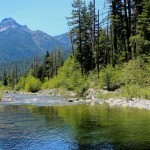
As we lay on our backs every evening, the asphalt of the bridge still warm from the day’s sun, we tracked satellites in the sky like so many mosquitos buzzing over the valley.
Above us, Billy’s Peak jutted out casting a harsh silhouette against the sky.
Below us, Ripple Creek trickled along carrying the snow-melt of the Trinity Alps into the farmlands below.
The scent of the air was an intoxicating mix of creek water, pine, dirt, tack-room must and the occasional waft of diesel from the farm equipment.
Sometimes, while prone on that bridge, we’d contemplate the fate of the Donner party (being far from civilization and in the mountains, as we were).
Other times we’d pick a lone star (in a sky filled with trillions) and try to direct the others to guess which point of light it was that we had picked out.
“You see that star? The bright red one? Now, go two fingers to the left…there, that cluster of three? Now go up at a 75 degree angle…”
And still, there were times, when no one spoke, but for the occasional, “Oh wow! Did ya see that?” at a passing shooting star.
On those quiet nights, we’d huddle under the jackets and blankets we’d brought with us from base camp, gently intertwine our fingers with each other, and gulp in the thin mountain air the way thirsty men greedily drink cool water.
Out there, on that bridge, 30 miles from nowhere, we were free.
And for me, for just a moment, I was free of my body.
I’ve been chronically ill with an autoimmune disease for 8 and half years–and at 26 years old, that means I’ve been sick my entire adult life.
To be chronically ill is like forever being in a jail made of your own broken self. Freedom and independence so often seem to be but distant memories of a life that is no longer yours.
However, once in a while, the lock of your cage is opened by a kind prison guard (perhaps the right combination of fresh air, rest, caffeine, and allergy pills), and you are able to step out and once again remember what pure freedom is like, and bathe in it like it’s the fountain of youth.
There’s a reason so many sanitariums of days yonder were in the mountains.
There’s something mystical and healing in the quality of the air, the water, the sounds, the textures and the scents.
Up in the northern California hinterlands, near the Shasta and Trinity Rivers, is a little place called Ripple Creek, about 100 yards down from Coffee Creek Road.
The only proper music to listen to while ascending to this mountain hideaway (over poorly paved roads) is the album, Nebraska, by Bruce Springsteen.
And the only thing one must do while visiting Ripple Creek, is throw-off the shackles of pain, strife, sickness, and cell phone, and immerse oneself in the freedom of being alive with no expectations. Just shooting stars and satellites.
About the Author:
Julie Bien is the blog manager for the Jewish Journal of Los Angeles as well as a freelance writer and photographer. Coffee–not blood–is what runs through her veins. She received her MA in mass communications in 2012 just so she could include the phrase “received her MA” in all future author bios.
Thank you for reading and commenting. Please enter the Independence Travel Writing competition and tell your story.
The post The Bridge at Ripple Creek appeared first on We Said Go Travel.
We Said Go Travel
We Said Go Travel is a global community of over sixteen hundred writers with articles from every continent.
Stories are shared with photos and video from a perspective of the transformative power of travel. We Said Go Travel has hosted live and online events as well as travel writing contests around the world. ...more
- Lisa Niver's profile
- 57 followers


